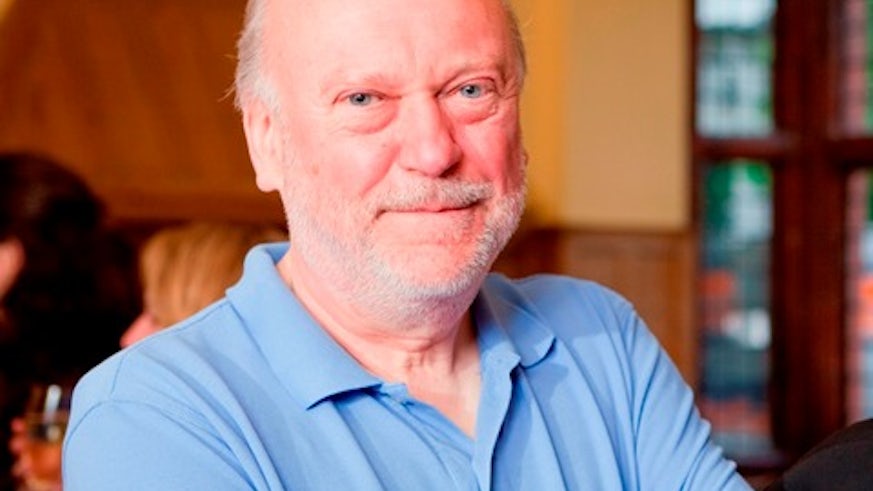Academic who’s taught more British newspaper journalists than any other puts down pen after 35 years at leading Cardiff journalism school
3 June 2015

A Cardiff University lecturer who's thought to have taught more British newspaper journalists than any other has officially put down his red pen after 35 years at the helm of one the UK's longest-running and most successful journalism courses
David English – whose alumni include many of the UK's journalistic elite at outlets including The Times, Telegraph, Guardian, Daily Mirror and the BBC, as well as regional newspapers across the country - will this summer retire from his role as Newspaper Director at the University's School of Journalism, Media and Cultural Studies.
During his time at the
School – ranked the UK's top journalism school in the Guardian's University Guide for 2016 - David has overseen the training of
more than 1000 journalists, many of whom now occupy the top roles in British
newspaper journalism.
Over the past three decades, he has overseen the School's transition from a
small editorial preparation centre to the internationally-renowned,
multi-disciplinary media training ground that it is today.
During this time, the
centre has adapted to position itself at the forefront of digital developments,
while retaining its commitment to the core, steadfast values of good
journalism.
Fondly known by alumni for his love of Cardiff Blues Rugby Club and notoriously
direct feedback on students' work – always penned in red ink – David's
no-nonsense, but humorous and fair, teaching style has earned him a fond
reputation among students and colleagues.
A graduate of Modern History from Oxford University, he initially trained as a journalist with Thomson Regional Newspapers (now Trinity Mirror), on the Belfast Telegraph and then The Journal, Newcastle. In 1980, he then took up a role as Public Administration tutor at the Thomson Editorial Training Centre in Cardiff, before joining the (then) Centre for Journalism Studies at Cardiff University.
Professor Richard Sambrook, Director of Cardiff University's Centre for Journalism, said: "More British newspaper journalists are thought to have been trained by David English than by any other person. It's a remarkable track record and achievement. One of David's highest forms of praise is to call someone "a real journalist". David is a journalist's journalist.
"The vigour and strengthof British newspaper journalism is
revered across the world and David's played a key role in upholding and
instilling this reputation through all of the students who've passed through
the School's doors.
"He's been an influential presence for many young journalists through what is
one of the most formative years of their career and, as such, is held in
extremely high regard."
David's replacement has been announced as Michael Hill, whose near 20-year career as a journalist includes time spent as Editor of the South Wales Echo and as Head of Multimedia for Trinity Mirror.

Michael has worked with some of the biggest news organisations in Britain and spent time looking at pioneering digital news operations in the United States and Europe. His career as a journalist has seen him report on the disaster caused by Hurricane Mitch in Honduras, the funeral of Princess Diana from inside Westminster Abbey, a Wembley final and the battle to save Britain's last train maker.
He was a News Editor during 9/11 and has interviewed subjects from Prime Ministers to survivors of major disasters, as well as running award-winning campaigns and investigations teams and defending stories in court against injunctions, contempt and libel claims. As an editor and web editor, he has also redesigned newspapers and developed new newsroom-operating models.
Michael said: "Cardiff graduates always leave with a solid grounding in the fundamental principles of print and online journalism and a strong grasp of media ethics and law, but I'm joining the School at a time when it is further developing its offering. The News Journalism course, as it will now be known, will also give students the opportunity to hone their interests further and study specialist reporting modules in data, sport, politics, business, motoring and lifestyle and consumer journalism."
"It's a hugely exciting new phase for the School - rightly positioned in league tables as the leading journalism training ground in the UK - and I'm looking forward to welcoming the new intake of students in September and beginning the process of turning them into the next generation of journalists."
Michael has taken up his role this week.